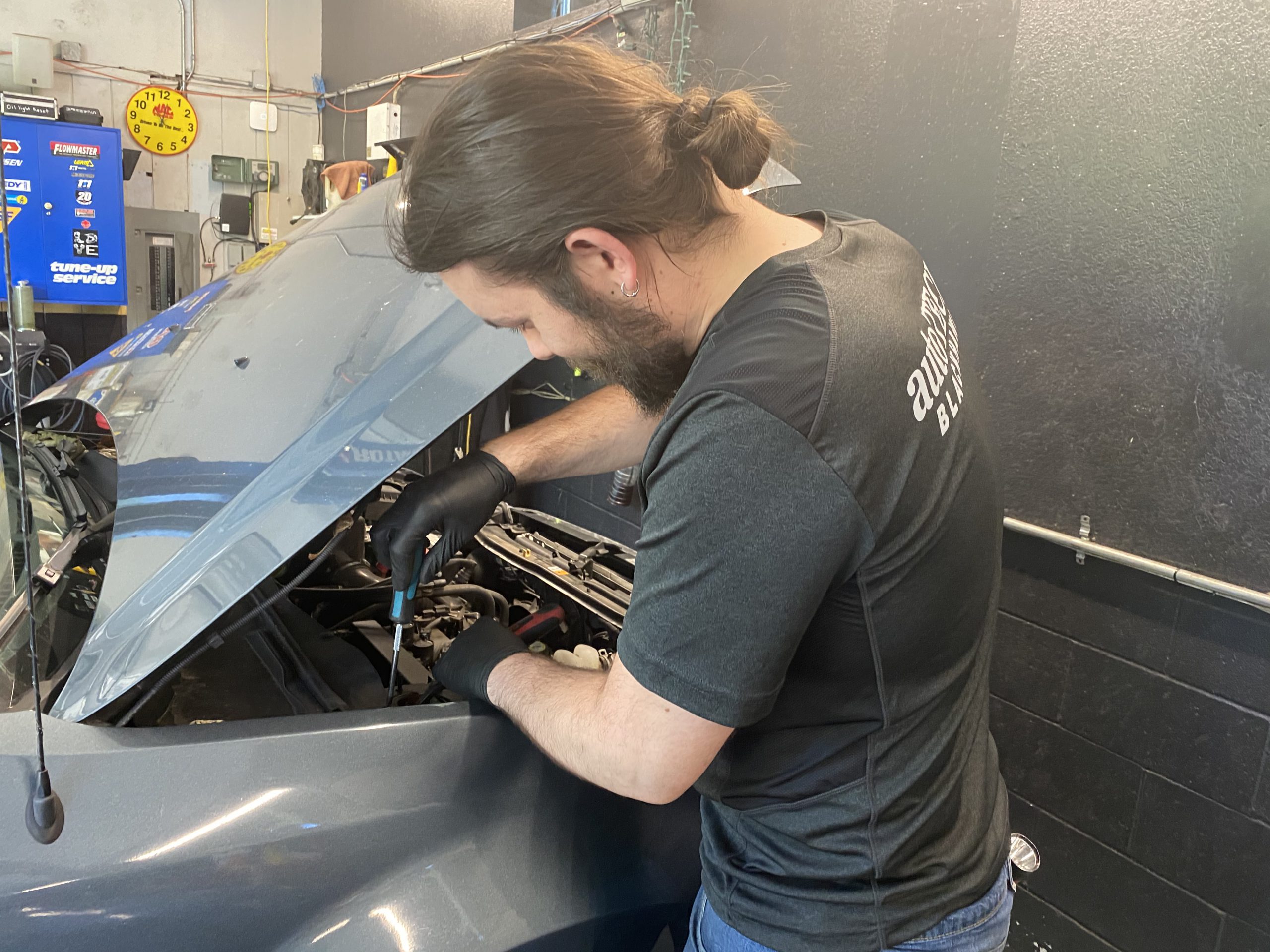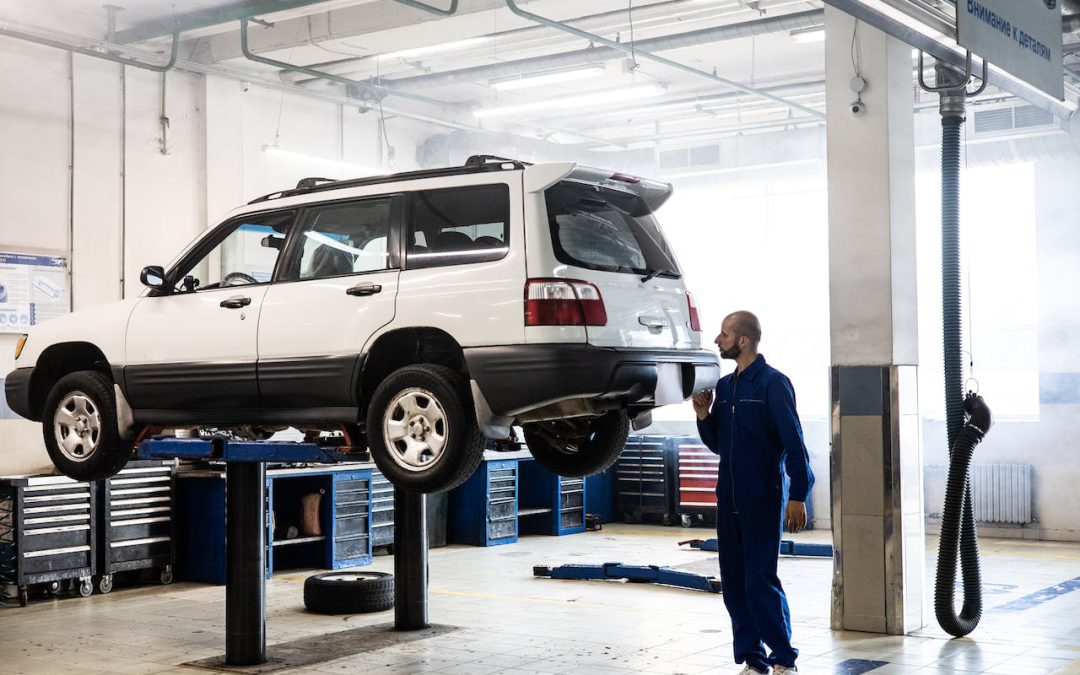Owning a car is both a privilege and a responsibility. Regular maintenance is essential not just for the longevity of your vehicle but also for your safety on the road. Ignoring maintenance can lead to unexpected breakdowns, costly repairs, and even accidents. In this comprehensive guide, we’ll explore ten signs that indicate your car is at risk and needs immediate attention from auto maintenance services. By recognizing these warning signs, you can take proactive steps to ensure your vehicle remains reliable and safe.
1. Warning Lights on the Dashboard
Understanding Dashboard Lights
Modern vehicles are equipped with sophisticated monitoring systems that alert drivers to potential issues through dashboard warning lights. Common warning lights include:
- Check Engine Light: Indicates a problem with the engine or emissions system.
- Oil Pressure Warning: Suggests low oil pressure, which can lead to engine damage.
- Battery Warning: Indicates issues with the electrical system or battery.
- Brake Warning: Signals potential brake system failure.
What to Do
If you notice any warning lights illuminating on your dashboard, don’t ignore them. Consult your owner’s manual to understand the specific warning and take your car to a certified mechanic for a diagnostic check. Ignoring warning lights can lead to more severe issues down the line.
2. Unusual Noises
Types of Noises to Watch For
Pay attention to any new or unusual sounds coming from your vehicle. Common noises and their potential implications include:
- Grinding or squeaking: May indicate worn brake pads or issues with the brake system.
- Hissing or bubbling: Could suggest a coolant leak or overheating engine.
- Knocking: Often a sign of engine trouble or low oil levels.
- Clicking: May point to problems with the starter or ignition system.
What to Do
If you hear any unfamiliar sounds, schedule an appointment with a mechanic immediately. Describing the noise can help the technician identify the problem more quickly.
3. Changes in Performance
Recognizing Performance Issues
Changes in your vehicle’s performance can indicate underlying problems. Common signs include:
- Reduced acceleration: May signify issues with the fuel system or transmission.
- Slipping gears: Often points to transmission problems that require attention.
- Poor fuel efficiency: A sudden drop in mileage can indicate engine or fuel system problems.
- Difficulty starting: Could suggest battery or ignition system issues.
What to Do
If you notice any changes in how your car drives or performs, it’s essential to address the issue promptly. A certified mechanic can perform a thorough inspection to diagnose and rectify any performance-related problems.
4. Fluid Leaks
Identifying Fluid Leaks
Fluid leaks can be a significant indicator of automotive problems. Common fluids that may leak include:
- Oil: Typically brown or black; a leak can lead to engine damage if not addressed.
- Coolant: Often green or orange; a coolant leak can cause overheating.
- Transmission Fluid: Usually red or brown; low transmission fluid can lead to shifting problems.
- Brake Fluid: Clear or yellow; a brake fluid leak can compromise your vehicle’s braking ability.
What to Do
If you notice any puddles or spots under your car where it’s parked, check the color and consistency of the fluid. Take your car to a mechanic to identify the source of the leak and have it repaired.
5. Brake Issues
Signs of Brake Problems
The braking system is crucial for your safety, so any indication of a problem should be taken seriously. Common signs include:
- Squeaking or grinding sounds: Typically indicate worn brake pads.
- Soft or spongy brake pedal: Could signify air in the brake lines or low brake fluid.
- Vibration when braking: May indicate warped rotors.
- Warning light: Some vehicles have a dedicated brake warning light that can illuminate for various reasons.
What to Do
If you experience any brake-related issues, seek professional help immediately. Brakes are not something to overlook, as they directly affect your safety on the road.
6. Tire Problems
Recognizing Tire Issues
Tires are the only contact your vehicle has with the road, making their condition crucial for safety and performance. Watch for these signs:
- Uneven wear: Indicates misalignment or suspension issues.
- Bald spots or low tread depth: Compromises traction and handling.
- Vibration or noise: May signal a problem with the tire itself or the alignment.
What to Do
Regularly inspect your tires for signs of wear and maintain the recommended tire pressure. If you notice any issues, have your tires checked by a professional and consider rotation or replacement if necessary.

7. Battery and Electrical System Issues
Understanding Battery Problems
The battery is essential for starting your vehicle and powering electrical components. Signs of battery or electrical system issues include:
- Dimming headlights: Could indicate a weak battery or alternator issues.
- Slow engine crank: A sign that the battery may be weak or failing.
- Warning light: A battery light on the dashboard often indicates charging system problems.
What to Do
If you experience any electrical issues or suspect a weak battery, have it tested at an auto maintenance service. Replacing a failing battery promptly can prevent being stranded.
8. Exhaust Issues
Recognizing Exhaust Problems
The exhaust system plays a vital role in controlling emissions and maintaining engine performance. Common signs of exhaust issues include:
- Loud noises: A loud rumbling or hissing could indicate a leak in the exhaust system.
- Strong odors: A strong smell of exhaust fumes inside the vehicle can be dangerous and may indicate a leak.
- Decreased fuel efficiency: Issues with the exhaust system can impact fuel consumption.
What to Do
If you notice any exhaust-related problems, take your vehicle to a professional for inspection. Ignoring exhaust issues can lead to increased emissions and potential health hazards.
9. Steering and Suspension Problems
Signs of Steering and Suspension Issues
The steering and suspension systems are crucial for vehicle stability and control. Look out for these signs:
- Steering wheel vibration: Could indicate alignment or suspension issues.
- Pulling to one side: Often a sign of misalignment or uneven tire pressure.
- Unusual noises while turning: May suggest issues with the steering components or suspension.
What to Do
If you notice any problems with steering or suspension, have them checked by a qualified technician. These systems are critical for safe handling and stability.
10. Scheduled Maintenance Intervals
Importance of Regular Maintenance
Even if you don’t notice any immediate signs of trouble, adhering to your vehicle’s scheduled maintenance intervals is essential. Regular maintenance helps catch potential problems before they become serious issues. Check your owner’s manual for the recommended service schedule, which typically includes:
- Oil changes: Usually every 3,000 to 7,500 miles, depending on the vehicle and oil type.
- Fluid checks and replacements: Including coolant, transmission fluid, and brake fluid.
- Brake inspections: Typically every 10,000 to 20,000 miles.
- Tire rotations: Usually every 5,000 to 7,500 miles.
What to Do
Stay proactive about your vehicle’s maintenance needs. Set reminders for regular services and consult with your mechanic to ensure all recommended maintenance is performed on time.
Conclusion
Maintaining your vehicle is essential for safety, performance, and longevity. By paying attention to these ten signs, you can prevent costly repairs and ensure your car remains reliable on the road. Regular inspections, fluid checks, and prompt attention to warning signs will help keep your vehicle in top condition. Don’t wait until it’s too late—schedule your auto maintenance services now to keep your car running smoothly and safely.
Are You Facing Car Emissions Test Failures?
Experience the unparalleled expertise of autoTECH Blackhawk in addressing car emissions test failures. Why choose autoTECH Blackhawk for resolving your emissions test issues? Our hallmark is our unwavering commitment to building lasting relationships with our customers, a crucial aspect in the complex domain of car emissions systems and their maintenance. This commitment is the cornerstone of our tailored service, guaranteeing that our emissions test solutions are precisely tailored to meet your individual needs and objectives for your vehicle’s performance and reliability.
Whether you’re troubleshooting a failed emissions test, dealing with your car’s emissions failures, ensuring the compliance of your family car, or seeking expert advice on any emissions system anomalies, autoTECH Blackhawk stands as your reliable ally. We are proud of our industry-leading 3-year/36,000-mile warranty and our promise to utilize only Original Equipment and manufacturer-recommended parts, assuring your complete satisfaction with our emissions test failure solutions. Don’t hesitate to contact our friendly team today to schedule a convenient and contactless consultation for your car’s emissions test needs!


